The Speaker’s Ruling on Vacant Parliamentary Seats: A Constitutional Dilemma | Features
[ad_1]
On October 17, 2024, Speaker of Parliament, Alban Sumana Bagbin, declared four parliamentary seats vacant, citing Article 97(1)(g) of the 1992 Constitution. The decision, which affects both New Patriotic Party (NPP) and National Democratic Congress (NDC) Members of Parliament, has sparked widespread debate.
At the heart of the matter is whether this ruling aligns with Ghana’s democratic principles and constitutional framework. In my view, the Speaker’s decision is fundamentally flawed and undermines the democratic process in Ghana…
The Constitution: Democratic Representation and Individual Rights
Article 97(1)(g) of the 1992 Constitution states that an MP must vacate their seat if they resign from the party under which they were elected to Parliament or if they become independent. The Speaker’s ruling interprets this provision to mean that MPs who have chosen to contest as independent candidates in future elections must immediately vacate their current parliamentary seats. This interpretation raises serious constitutional and legal concerns…
Ghana’s Constitution was built on democratic ideals, particularly the principle that individuals have the right to participate in elections, including primaries and national elections, without undue interference. By declaring these seats vacant, the Speaker effectively penalizes MPs for exercising their democratic right to contest future elections, even before their current parliamentary term has expired. This undermines the spirit of democratic participation enshrined in Article 42, which guarantees every citizen the right to vote and be voted for in public elections…
Undermining Democratic Processes
The Speaker’s ruling introduces a problematic precedent that could severely impact the future of party primaries and the selection of presidential and parliamentary candidates. Under this ruling, political parties would be compelled to retain sitting MPs who wish to contest as independent candidates, merely to preserve their parliamentary majority or minority status. This would interfere with the party’s internal democratic processes, where delegates are supposed to freely choose candidates for future elections…
The decision implies that political parties can no longer replace MPs through primaries without risking the loss of parliamentary seats during a current session. This goes against the foundational principles of democracy that allow for open contestation within parties. The ruling thus hits at the heart of Ghana’s democracy by effectively constraining both political parties and individual candidates in their freedom to compete in elections…
A Constitutional Misinterpretation
In delivering his ruling, Speaker Bagbin cited previous decisions and referenced Article 97(1)(g). However, this interpretation is problematic for several reasons. First, the Constitution does not intend for the declaration of vacant seats to occur simply because an MP chooses to contest as an independent in the next election. The clause primarily addresses situations where an MP has resigned from their party or declared their independence during their term in Parliament. The intent is not to punish MPs for expressing interest in contesting the next election outside their party’s banner…
Furthermore, the Constitution envisions that Parliament should sit for a full four-year term, with MPs representing their constituents for the duration of that term. By declaring seats vacant before the end of the parliamentary session, the Speaker’s decision could disenfranchise the constituents who elected these MPs, violating their right to full representation. A ruling that compels MPs to leave Parliament because they choose to run as independents in the next election creates ambiguity and confusion regarding the relationship between parliamentary service and electoral ambition…
The Role of the Supreme Court
In my opinion, It is crucial that the Supreme Court steps in to clarify the proper interpretation of Article 97(1)(g). The Constitution must be applied consistently and in line with the democratic principles it was founded upon. Allowing the Speaker’s ruling to stand would set a dangerous precedent, where MPs could be prematurely removed from Parliament, based not on their current actions, but on their future political aspirations…
As it is also my opinion that, the Supreme Court should ensure that MPs are not punished for contesting future elections, as this could undermine the very foundation of competitive democracy. By doing so, it will safeguard the consistency and certainty of constitutional interpretation, ensuring that MPs who have been duly elected serve their full terms unless they formally resign or breach constitutional requirements during their tenure…
Implications for Party Primaries and Presidential Elections
The Speaker’s ruling could also complicate the conduct of party primaries and even future presidential elections. Under the current interpretation, if an MP or presidential aspirant loses their party’s primaries and decides to run as an independent, this could mean they must vacate their current seat or office immediately. This would effectively discourage political competition, as candidates might fear losing their positions before the end of their terms simply for pursuing independent candidacies…
In a broader sense, the ruling could put a cap on MPs’ and candidates’ constitutional rights to stand for elections, restricting the pool of potential candidates in both parliamentary and presidential races. It would undermine the constitutional guarantee that anyone qualified to contest elections should have the opportunity to do so, without being constrained by arbitrary rules that pre-emptively remove them from office…
The Supreme Court, being the highest judicial authority in the land, is not bound by precedents set by any other body, including Parliament. It is the ultimate interpreter of the Constitution, entrusted with the responsibility to ensure that all actions by state actors are in alignment with the supreme law of the land including itself. The Court has the authority to set new legal precedents, and as such, it can review and overturn decisions that do not conform to constitutional principles.
In this case, the Speaker’s ruling to declare the seats of the MPs vacant contradicts the broader democratic principles enshrined in the Constitution, particularly regarding the rights of MPs to contest as independent candidates or through party primaries without losing their seats. The Supreme Court’s stay of this ruling reaffirms its role as the final arbiter in constitutional matters, ensuring that interpretations of the law uphold democratic processes and the rule of law, rather than undermining them…
Conclusion: A Threat to Ghana’s Democracy
The decision of the Speaker is a narrow interpretation of the provision under the article, though rooted in a constitutional provision, is ultimately wrong in both law and democratic principles. It undermines the foundation of our democracy, where every citizen has the right to contest elections freely. By interpreting Article 97(1)(g) in this way, the Speaker has restricted the rights of MPs and disrupted the internal democratic processes of political parties…
The Constitution remains the highest law of the land, and its interpretation must always align with the principles of fairness, democracy, and the right to participate in elections. Anything less would be an infringement on the rights of both MPs and the constituents they represent. The Supreme Court must intervene to provide a clear and just interpretation of the law, ensuring that Ghana’s democracy continues to thrive without unnecessary constraints on political participation….
Source: Lawyer Charles Owusu Juanah
| Disclaimer: Opinions expressed here are those of the writers and do not reflect those of Peacefmonline.com. Peacefmonline.com accepts no responsibility legal or otherwise for their accuracy of content. Please report any inappropriate content to us, and we will evaluate it as a matter of priority. |
Featured Video
[ad_2]
Source link

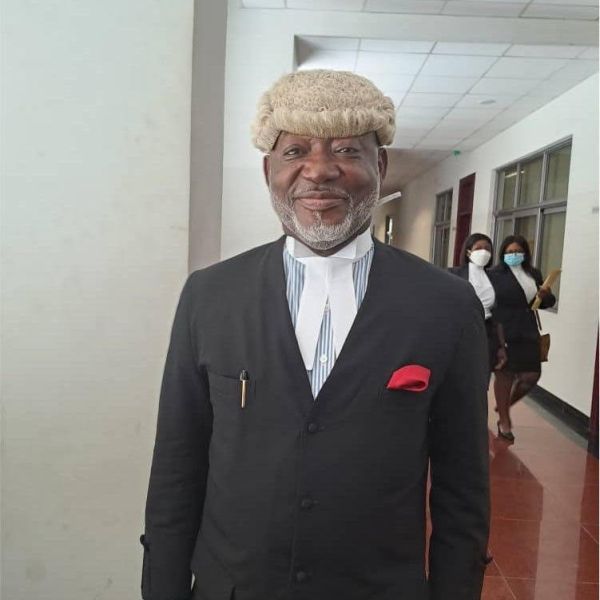
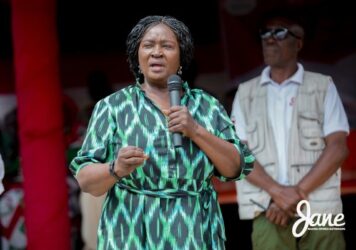

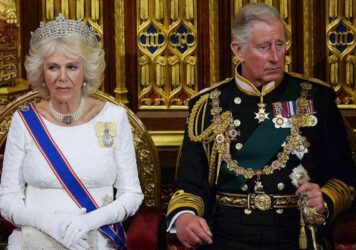
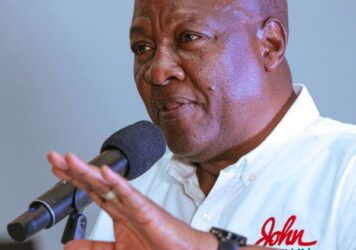

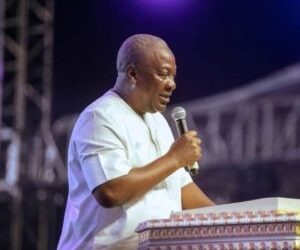


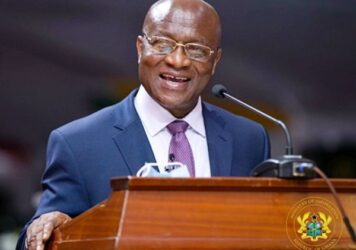


Leave a Reply